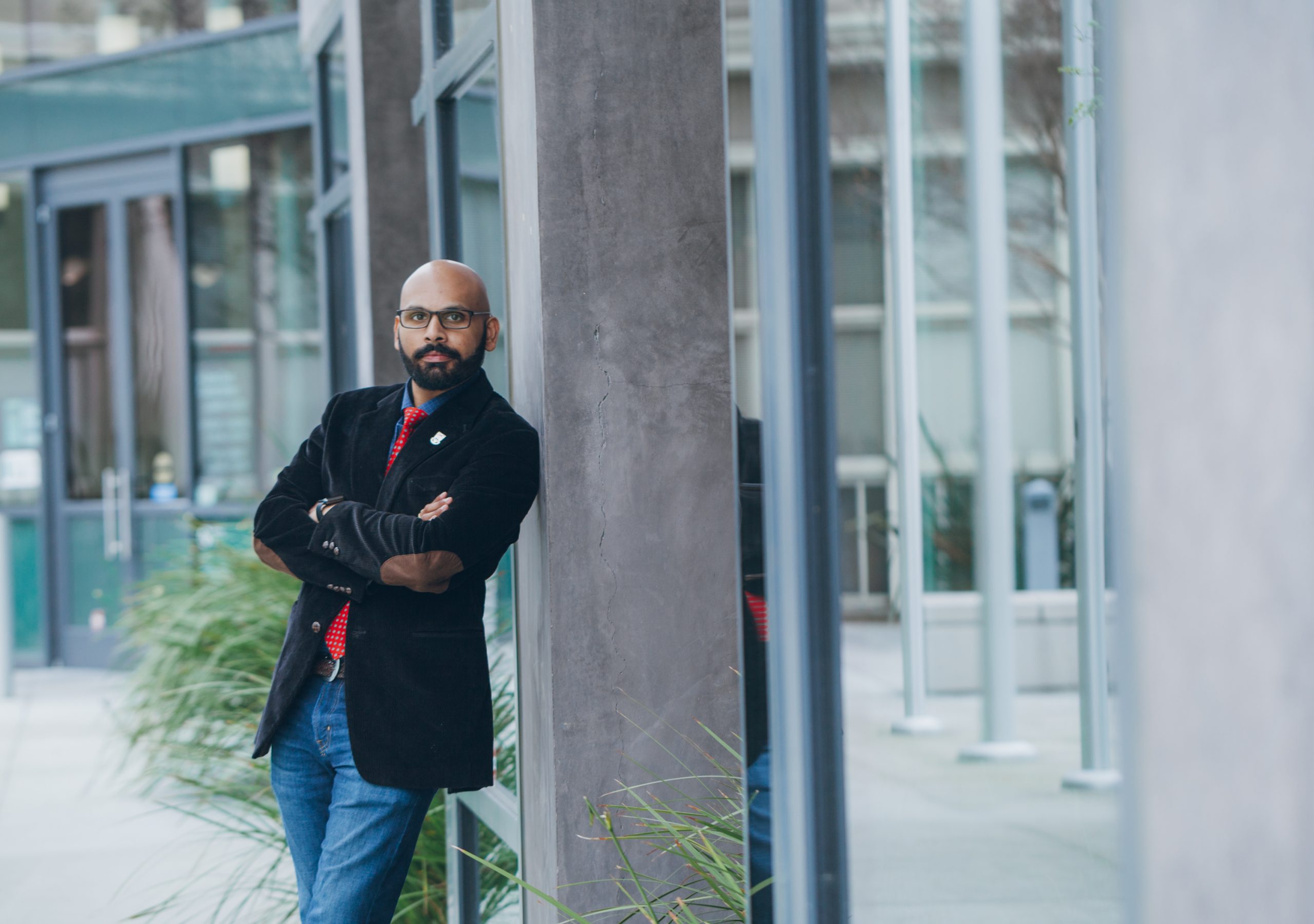
Scholar-elect Dhruv Nandamudi will study the role of stress in mental health and how memory control can reduce the impact of triggers.
I am interested in how we can best bolster the efficacy of memory control as a therapeutic intervention.
Dhruv Nandamudi
Dhruv Nandamudi lived most of his early years on the outskirts of Detroit. At eight his family moved to Silicon Valley in California and, despite being very young, the difference in settings was clear to him. Although Silicon Valley was much more multicultural than Detroit, it was also much more competitive. “Silicon Valley was very diverse and also very fast paced and competitive. Everyone was on the edge and stressed out. There was a lot of achievement anxiety,” he says. That culture was reflected at school.
The pressure to achieve good grades ramped up in middle school and Dhruv became aware of the impact of stress on his fellow students’ mental wellbeing. In high school he was a tutor for calculus class and says one girl he was teaching burst into tears because she was struggling to keep up with her peers. “I was struck that she felt that her worth was less because of this. A lot of my classmates felt their worth was linked to how well they did,” he says.
This early awareness has fuelled Dhruv's subsequent studies and interest in how acute stress affects people’s sense of self.
At Cambridge he will do a PhD in Biological Science at the MRC Cognition and Brain Sciences Unit under the supervision of Dr Michael Anderson. There he will investigate the role of stress in mental health and the interplay between memory control and cognitive behavioural strategies to reduce negative environmental triggers.
Dhruv [2019] gives the example of a war veteran whose post-traumatic stress disorder is triggered by watching a film where there is an explosion. That might begin a downward spiral. If that veteran is able to actively suppress that memory or retrieve alternative memories it can make the trigger less potent and negative, he says. He states: “I am interested in how we can best bolster the efficacy of memory control as a therapeutic intervention.”
Early research work
Dhruv had not originally intended to be a researcher. Half of his family are in medicine, including his mother who is an ear, nose and throat surgeon, and two of his uncles. It was no surprise then that he initially wanted to follow in their footsteps and become a doctor.
However, Dhruv got the research bug early. Even while he was at school he was taking part in research studies at Stanford over the summer vacation. He worked in diabetes, cancer and cell biology laboratories. Dhruv was also a national finalist in both the Siemens Competition and Intel International Science and Engineering Fair (ISEF). At Yale Dhruv’s interest in research on mental health and his awareness of the lack of resources for psychology and neuroscience developed gradually. He spent several summers working in clinical mental health settings, for instance, on a psychiatric ward. “I saw the level of care given and felt that a lot of it was really like throwing darts at a board. Doctors would try quite potent drugs and if they didn’t work they would try others to see which one stuck. For some being docile was equated with wellness. I was put off by that,” he says.
The summer after he was a resident counsellor at a hospital in Wisconsin working for a psychological facility whose focus was on cognitive and behavioural therapy. “I saw the efficacy of that approach in comparison with pharmaceutical attempts to fix complex problems,” says Dhruv.
He became passionate about investigating the causes of mental health issues and finding effective treatments.
Student stress study
Inspired by his summer work and by a class he was taking in psychology and happiness, Dhruv began working at the Yale Centre for Emotional Intelligence where, through the encouragement of co-director Dr Emma Seppala, he led a large scale study into the effects of student stress on academic performance. Using brain scans, self reporting and measuring cortisol levels, the project investigated how stress might be alleviated through, for instance, mindfulness workshops and leadership training.
The results were presented to the Yale board, including suggestions for simple interventions that could help. Dr Seppala and others, including Gates Cambridge Scholars Dr Molly Crockett and Robert Henderson, encouraged Dhruv to apply to Cambridge and to Gates Cambridge. He did not apply until after graduating because his mother had health problems at the time. In the year between graduating and starting at Cambridge Dhruv has been working in Professor James Gross’ laboratory at Stanford looking at how student stress affects dietary choices.
He hopes his research can help to provide effective treatments for mental health problems and recalls one of his mentors at Yale, Dr Kristi Lockhart, telling him about a girl who had become depressed as a result of complex family problems. She was put on anti-depressants which improved her mood, but did not solve problems, such as abuse and bullying. “It was like putting a bandaid on a bullet wound,” says Dhruv.












